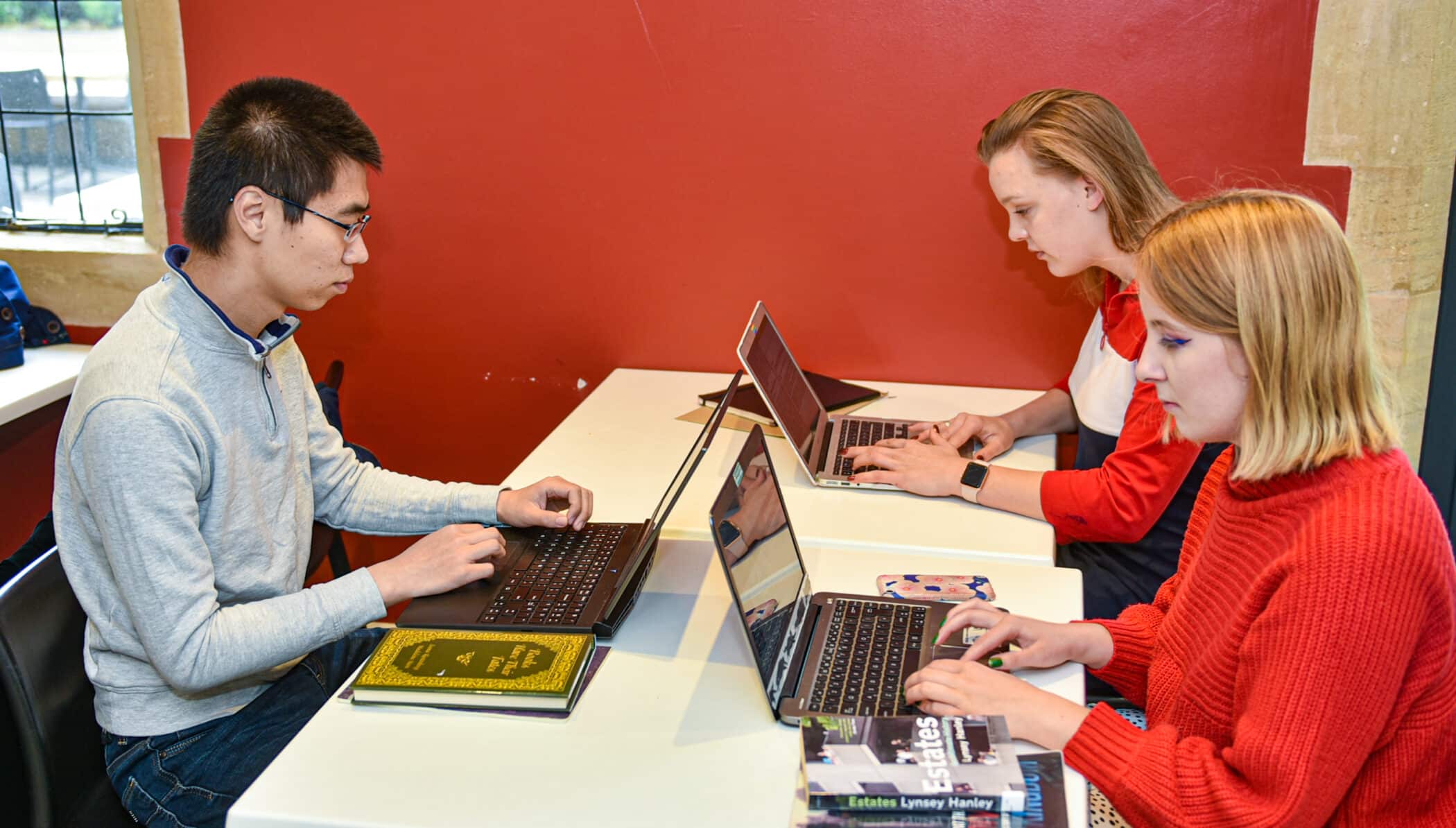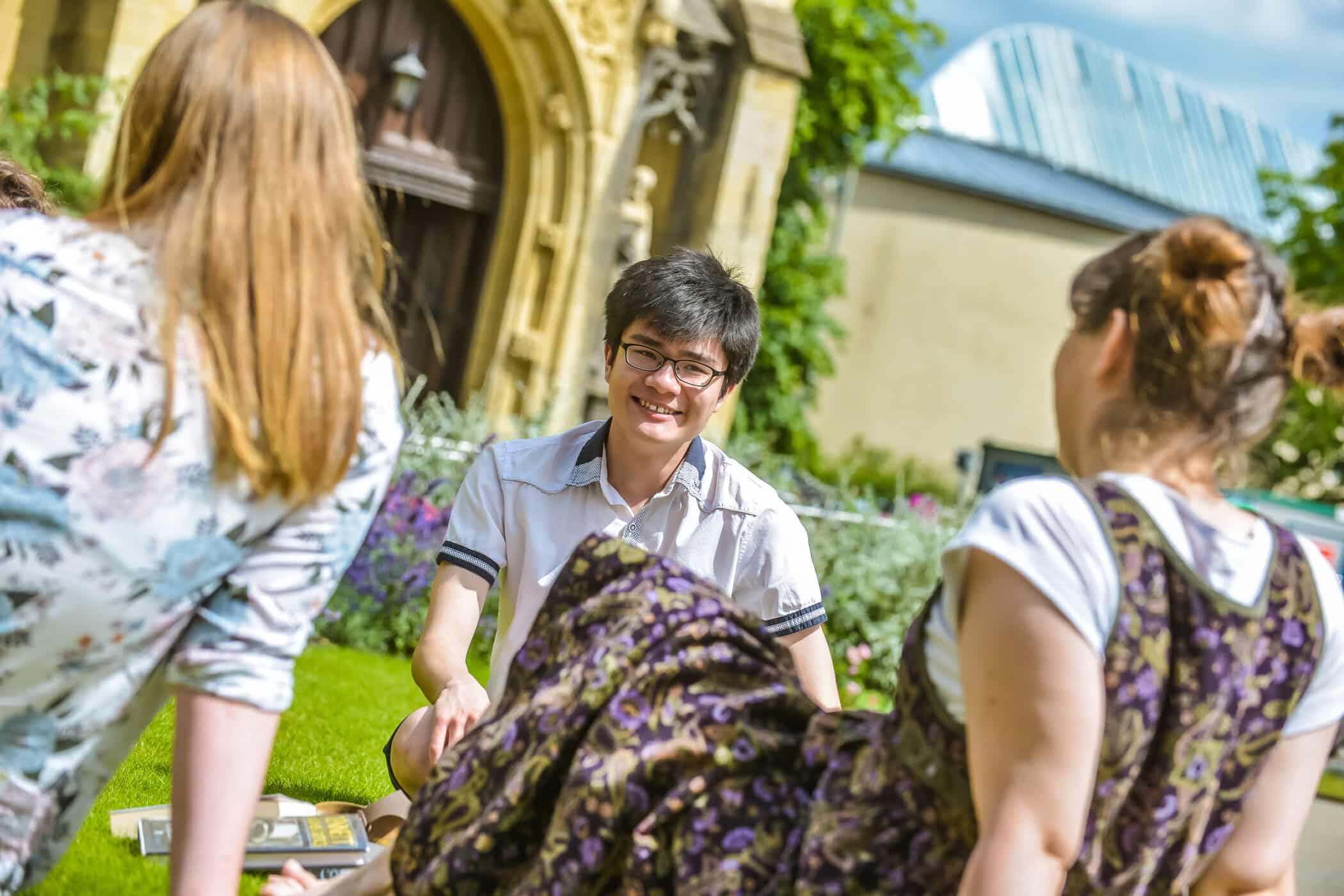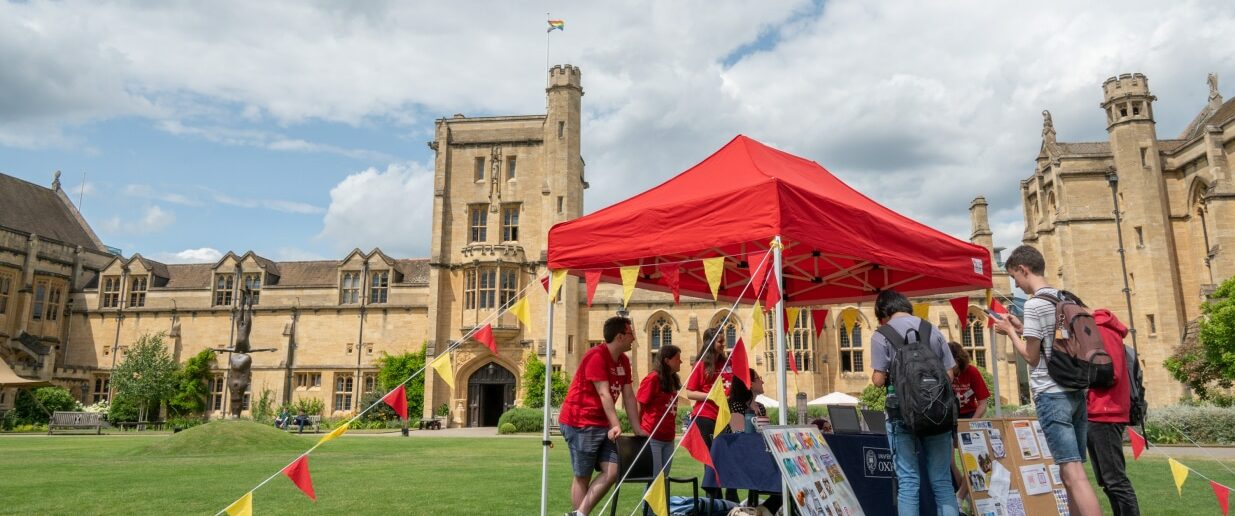You can apply for an undergraduate course at Oxford between 2 September and 15 October 2025 for entry in 2026 or deferred entry in 2027.
Applicants must complete a UCAS application before 6pm UK time on 15 October.
You should ensure that you allow your school or college plenty of time to complete the reference section before the deadline.
We will only accept late applications if there are exceptional circumstances.
More information about making a UCAS application can be found on the Oxford undergraduate admissions website.
Choosing a Course
Choosing a College
Key application dates
- 15 September: deadline for registering for the LNAT admissions test for law
- 19 September: deadline for registering for the UCAT admissions test for medicine
- 19 September: deadline for registering for other admissions tests
- 26 September: last day on which the UCAT may be taken
- 26 September: deadline for booking your test slot for other admissions tests
- 15 October: last day on which the LNAT may be taken
- 15 October: deadline for submitting UCAS forms
- Late October: acknowledgment emails sent
- 21-27 October: admissions tests to be sat in Pearson VUE test centres
- 10 November: deadline for written work to arrive at the College
- Late November to early December: shortlisting decisions sent out by email, subject by subject
- Mid December: interview period
- 13 January: decision communicated by email and UCAS
- 15 February: deadline for requesting individual feedback
Step 1. Admissions tests
All admissions tests will be online, delivered in partnership with Pearson VUE via its established network of test centres. Please see the University of Oxford website for more information.
Step 2: UCAS application
Submit your application by 6pm UK time on 15 October
Make sure you leave your school or college plenty of time to complete the reference section before your deadline. We’ll only accept late applications if there are exceptional circumstances.
How to select Mansfield as your preference
To select us on your UCAS application, include the following codes:
- Institution code name: OXF
- Institution code: 033
- Campus code: E
Step 3: Written work
Complete any required written work by 10 November
For English, History, Philosophy & Theology, and Theology & Religion, we ask you to send us written work as part of your application. This should be part of your normal school or college work – something marked by a teacher, and a maximum of 2,000 words. We use this to assess your writing ability, critical thinking skills, and the support you’re receiving in school.
How to submit your work
Send your piece as one multi-page PDF (including the cover sheet we provide) to admissions@mansfield.ox.ac.uk, Or, if you’re unable to scan and email your written work, you can submit a hard copy (single-sided and not stapled) to the Admissions Office, Mansfield College, Mansfield Road, OX1 3TF. Please make sure you use adequate postage, and bear in mind work we receive by post can’t be returned to you.
Here’s guidance from the course faculties:
English
History
Philosophy & Theology, Theology & Religion
Step 4: Shortlisting
As part of the admissions process, we shortlist for interview any candidate who we believe shows aptitude for their subject and fits the selection criteria for their course. Unfortunately we’re not able to interview all applicants, but we shortlist on average around 60% of applicants for interview, with variations from subject to subject. Shortlisting is coordinated by each individual department, to ensure that no candidate is disadvantaged by applying to an oversubscribed college. A small amount of reallocation between the colleges takes place during the shortlisting process, though not in every subject.
When will you be notified?
All applicants for each subject will be notified at the same time – whether you’ve been shortlisted for interview or not. This will be in late November or early December, depending on the subject. Dates for each subject will be published here nearer the time. Please also check your inbox and junk inbox for emails if you have not heard anything by the published date for your subject.
If you haven’t heard from the College by a week before the scheduled interview date, please contact us on admissions@mansfield.ox.ac.uk or 01865 282920.
Step 5: Your interview
The style of the interviews will be academic in focus, intellectually challenging, and will combine existing knowledge with new material. Discussions may focus on your personal statement, written work, material studied in school, texts/pictures/problems given during the interview, or completely new material.
During the interviews, we are looking to see that you would benefit from what we have to offer, in terms of both the course content and the way that we teach it. Part of this involves assessing whether you would benefit from studying in the tutorial system, where the focus is on discussion in very small groups. We also want to see that you’re able to think critically and independently about the questions we ask you, and that you can engage with material that you haven’t encountered before.
How much does the interview count for?
We’ll make your interview experience as comfortable as possible
Step 6: Decisions and feedback
Tutors will make their decision based on how well they think the candidate would perform on the course they’ve applied for, using the selection criteria for that subject, and how much they would benefit from what we have to offer. Each department will coordinate the decisions for their subject across all colleges, ensuring that the best applicants are made offers regardless of which college they applied to. A number of candidates will be reallocated to a different college, either after having an additional interview there, or after the tutors there have considered their application material.
Candidates for 2026 entry will be told whether or not their application has been successful on 13 January 2026. Decisions will be released via UCAS early in the morning. This will be followed by direct communication from the college considering your application. No decisions will be given out over the phone.
Application feedback
The deadline for requesting individual feedback via the Feedback Request Form is 15 February 2026.
Individual feedback
No feedback will be given before 13 January 2026. Any requests received before that date will be answered within 20 working days of 13 January.
Applicants who email to ask for feedback will be directed to fill out the form. Please note that we can only accept feedback requests from applicants – we’re not able to respond to feedback requests from parents, friends or teachers.
What will be in my feedback?
Why can't I receive feedback before 14 January?
Can my school or college receive my feedback?
What should I do if I have follow-up questions after I have received my feedback?
Feedback for the 2024-25 cycle
Mansfield made 95 offers for 2025 entry.
The following figures include offers for 2025 entry only. Figures also include students progressing from the Astrophoria Foundation Year.
Subject Breakdown
Gender
Domicile
School Type (UK only)
Office for Students Targets (UK only)
Subject Feedback
Subject specific feedback for the 2024-25 cycle is available below.
Computer Science (including Mathematics and Computer Science) Feedback
English Language and Literature Feedback
Law (inc. Law with Law Studies in Europe) Feedback
Mathematics (inc. Mathematics and Statistics) Feedback
"You have nothing to lose by applying, and the process isn’t as scary as it seems. You can learn a lot through the application alone, too; things like the personal statement and interview provide a lot of opportunities to think about what you like about the subject you’re intending to study, and where your strengths and weaknesses lie. Also, the interview format is quite similar to a tutorial, so you can get a good sense of whether you would like such an individual teaching environment. In terms of the application itself, focus on showing how passionate you are about your subject; they’re looking for enthusiasm and dedication, so use your application as evidence of that!"




Ready to apply to Mansfield?
You’ll need to apply through UCAS by 6pm UK time on 15 October. You may also need to complete an admissions test – which you’ll need to register for by 4 October (or 15 September for Law) – and/or written work.
UCAS Codes:
- Institution code name: OXF
- Institution code: 033
- Campus code: E

Contact the Mansfield Admissions Team
Registrar and Director of Admissions: Helen Brooks
Academic Officer: Sarah Terry
We look after the whole admissions process at the College – from when you send in your UCAS form, all the way through to when successful students arrive at Mansfield to start their course. Below is our step-by-step guide to your application, though if you have any questions about applying to Mansfield – or about the College itself – please get in touch with us.
– Email: admissions@mansfield.ox.ac.uk
– Phone: 01865 282920
– Address: Admissions Office, Mansfield College, OX1 3TF





